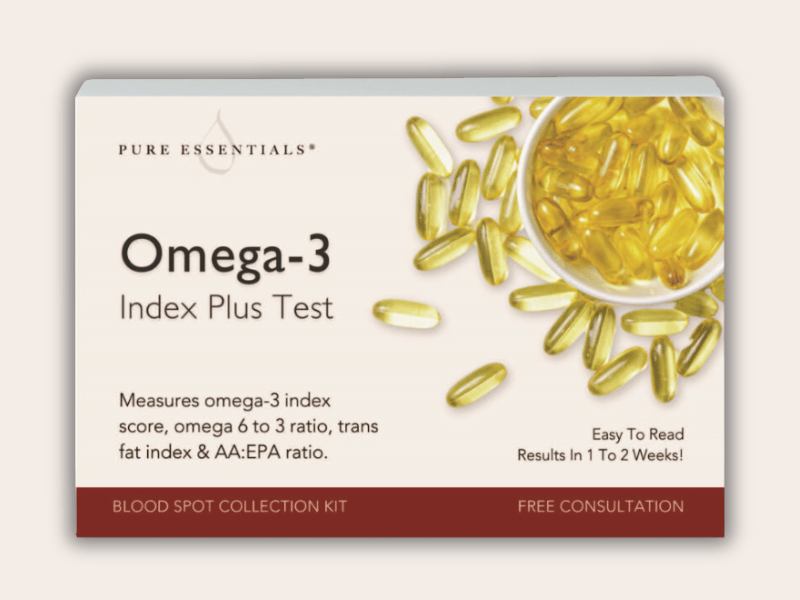3 Tips For Lowering Cholesterol Naturally
Cholesterol is a word that often brings to mind images of fatty foods and health warnings. Yet, this waxy substance is not all bad. HDL (high-density lipoprotein) cholesterol is essential for building cells. It helps produce hormones like estrogen or testosterone. It helps our metabolism and is essential in helping our bodies produce vitamin D.
The flip side is the part you’re likely more familiar with. Too much LDL cholesterol (low-density) can lead to heart disease and is among the leading causes of death globally.
There is good news! Cholesterol levels in some cases can be balanced through a natural, holistic approach. Physical activity, stress management, and dietary changes are important focal points for managing cholesterol.
Here are some tips for approaching each of those:
Tip #1 - Cholesterol-Balancing Diet Tweaks
Embracing a healthier diet is step one for a better lifestyle. But let's face it, breaking up with our favorite, often not-so-healthy comfort foods can be tough. Delicious often means not so nutritious.
Wondering how to swap that steak craving for a delightful salad or grilled veggies? Start by re-evaluating what's in your fridge and making wise choices at the grocery store. Dietary changes don’t start in the kitchen but rather at the store or, even better, in the garden.
One rule of thumb is to aim for fewer ingredients. Check those labels! Are you buying the butter that’s cheapest? Or the brand your family has always bought without question? You may find it worth your time - and a benefit to your health - to see if there’s a healthier option. Many times there is.
Set a goal for reducing your consumption of trans fats found in many processed foods like margarine, cookies, and crackers. Go for real butter instead; it has saturated fats from animals rather than the trans fats of many substitutes. Boost your soluble fiber intake with oats, beans, lentils, apples, and pears, and don't forget about healthy fats in avocados, olive oil, and nuts. Small changes, big impact
Tip # 2 - Physical Activity
Take up activities like brisk walking, cycling, or even gardening can improve cholesterol profiles by creating a balance between the good HDL and bad LDL.
One key to a healthy lifestyle through exercise is consistency. The best way to do that is by choosing an activity you really enjoy so that you’re more likely to stick with it. Don’t worry about intensity or pushing your body to its limits. Your goal is more movement activity going forward than you were getting in the past. Whether that involves taking the stairs instead of the elevator, a weekend dance class, or a daily stretching routine, every bit helps.
Omega-3 Index Test
Do You Know Your Omega 3:6 Ratio?
$89
- Our at-home test takes just minutes and reveals your omega-3 levels. It's the first step toward adjusting your diet and maintaining a sustained, healthy fatty acid intake.
- Measures your Omega 3:6 so you'll know if those are in optimal balance or in need of an omega-3 boost.
- Easy to follow results in just a couple weeks plus a free consultation with a nutrition expert.
Tip #3 - Stress Reduction
Stress has a more complex relationship with cholesterol than you might think. Chronic stress has been shown to indirectly contribute to higher LDL levels.
Techniques like mindful meditation, yoga, or tai chi can reduce stress and may have a beneficial effect on your lipid profile. Even a few minutes of deep breathing daily can act as a reset button for your stress levels and can help manage your cholesterol.
Like exercise, the goal is to create a consistent routine. Make time in your day for relaxation. Just about any activity that encourages you to slow down and relax can help – a nightly bubble bath, some soothing music, time with a good novel, or a journaling session. And don't forget, laughter is a great stress-buster – watch a comedy, share funny memes on social media, or just goof around when no one's looking.
Supplements Can Play A Roll Too
Omega-3 fish oil supplements can be a powerful ally in managing high cholesterol, especially for those who don't consume enough fatty fish in their diets (most of us do not).
It’s been proven that you can help reduce the risk of heart disease or stroke by taking a high quality omega supplement. Omega-3s are also great for brain health, so you're getting a 2-for-1 deal to support longevity.
Lowering cholesterol naturally is a multifaceted journey that extends beyond the dinner plate. By incorporating regular physical activity, managing stress, and considering the responsible use of supplements, we can take control of our cholesterol levels. Consult with your healthcare provider to create a personalized plan that's not only effective but sustainable for a healthier, happier heart.












